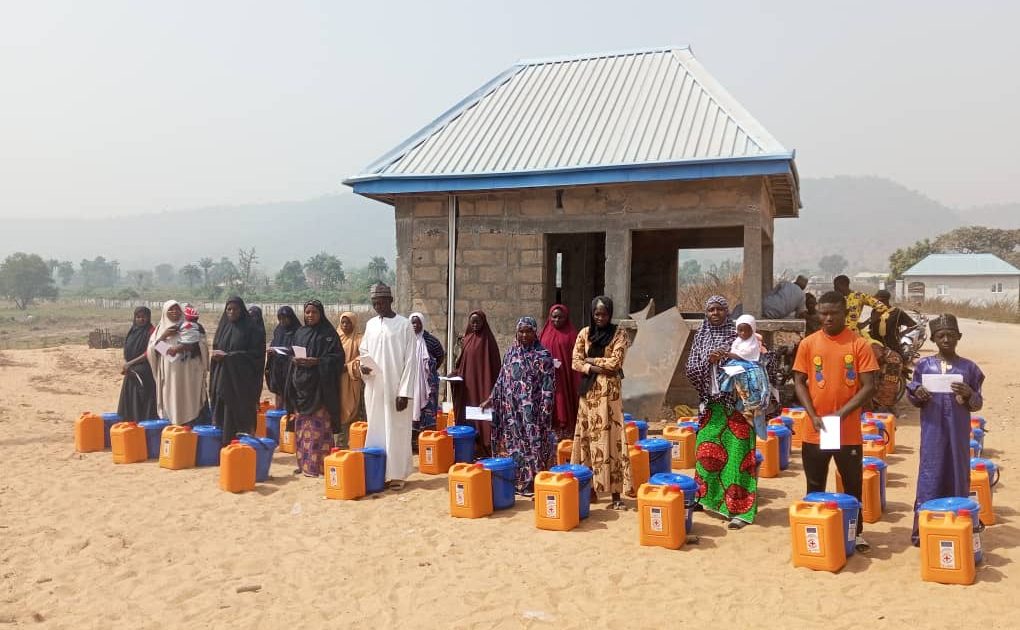The 2024 flood disaster left a trail of devastation across several Nigerian states, displacing thousands and disrupting livelihoods. In response to this humanitarian crisis, the European Civil Protection and Humanitarian Aid Operations (ECHO), in collaboration with the International Federation of Red Cross and Crescent Societies (IFRC) and the Nigerian Red Cross Society, launched a comprehensive relief intervention. This project aimed to provide immediate assistance to the most vulnerable flood-affected households, focusing on Kogi, Delta, and Anambra states, which bore the brunt of the disaster. The relief efforts targeted a total of 1,100 households across these states, carefully selected based on vulnerability criteria and the severity of impact experienced by their communities.
The relief distribution focused on essential items designed to address immediate needs and facilitate recovery. Each beneficiary household received a package comprising 20-liter jerrycans for safe water storage, buckets for hygiene and sanitation purposes, Aqua tabs for water purification, and a pre-loaded ATM card containing N77,000 to address immediate financial needs. This multifaceted approach aimed to provide both material and financial support to help families regain stability in the aftermath of the disaster. The distribution process prioritized those most in need, including individuals aged 60 and above, the sick, people with disabilities, and pregnant mothers, recognizing their increased vulnerability in crisis situations.
The selection of beneficiary communities was based on a thorough assessment of the flood’s impact. In Kogi State, three local government areas – Idah, Kogi, and Lokoja – were identified as the most affected. Within these areas, specific communities were chosen based on the severity of the flooding and the concentration of vulnerable populations. In Idah LGA, 300 households across Alla-Ogane, Alla-Atenoguma, and Alla-Ichala communities received assistance. In Lokoja LGA, 400 households in Galilee, Sarkin Noma, Edo, and Kampe communities benefited. Similarly, in Kogi LGA, 400 households across Ogbangede, Irenodu, Onumaye/Edimose, and Edegaki communities were included in the relief distribution. This localized approach ensured that aid reached the areas where it was most needed.
The Nigerian Red Cross Society played a crucial role in identifying and reaching the most vulnerable communities. Employing speedboats, Red Cross teams navigated the flooded terrain to assess the extent of the damage and identify those in dire need of assistance. This proactive approach ensured that aid reached even remote and isolated communities that might otherwise have been overlooked. The rigorous selection criteria, based on vulnerability and the severity of the flood’s impact, allowed the Red Cross to effectively target their limited resources, maximizing the reach and impact of the intervention. This method allowed them to prioritize the most vulnerable individuals and families within the affected communities.
The successful distribution of relief items in Edegaki community underscores the effectiveness of the collaborative approach adopted by the ECHO project. The assistant community leader, Alh. Ahmed Ibrahim, expressed profound gratitude for the timely assistance, highlighting the significant impact of the relief items in mitigating the devastating effects of the flood on their livelihoods. He emphasized the recurrent nature of flooding in their community and lamented past experiences of unfulfilled promises from other NGOs. The community’s appreciation for the Nigerian Red Cross Society’s dedication and the practical support provided, including training on the proper use of the items, demonstrates the positive impact of the intervention.
The ECHO project’s intervention exemplifies effective disaster relief, characterized by collaborative partnerships, targeted assistance, and a commitment to reaching the most vulnerable. The provision of essential relief items, coupled with financial support, addressed immediate needs while laying the foundation for recovery. The Nigerian Red Cross Society’s proactive approach, coupled with rigorous selection criteria, ensured that aid reached those who needed it most. The positive feedback from beneficiary communities, like Edegaki, underscores the project’s success in mitigating the impact of the devastating flood and providing hope for a more resilient future. The collaboration between international organizations and local actors proved instrumental in effectively addressing the complex challenges posed by the disaster and ensuring that aid reached those in greatest need.


